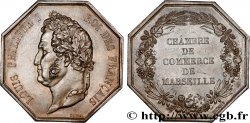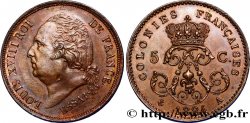- Accueil
- >
- >
Zurück 1/1
fjt_948998 - PROVENCE - JETONS ET MÉDAILLES DU XIXe S. Compagnie d’éclairage au gaz de Toulon, Nîmes et Marseille 1840 (1845-1860)
Menge
In den Warenkorb

Type : Compagnie d’éclairage au gaz de Toulon, Nîmes et Marseille
Datum: 1840 (1845-1860)
Metall : Silber
Durchmesser : 34 mm
Stempelstellung : 12 h.
Gewicht : 14,82 g.
Rand lisse
Punze : main indicatrice (1845-1860) et ARGENT
Seltenheitsgrad : R1
Kommentare zum Erhaltungszustand:
Exemplaire superbe
Vorderseite
Titulatur der Vorderseite TOULON. NIMES. MARSEILLE.
Beschreibung Vorderseite Les trois écus des villes accotés, couronnés et posés sur des ancres ; à l’exergue : CONSEIL/ D’ADMINISTRATION.
Rückseite
Titulatur der Rückseite COMPAGNIE ANONYME D’ECLAIRAGE PAR LE GAZ, AU CENTRE EN QUATRE LIGNES : FONDÉE/ LE/ 5 JUILLET/ 1840.
Beschreibung Rückseite Couronne de chêne.
Kommentare
Le gaz naturel était connu depuis l'Antiquité notamment en Perse mais ce n'est qu'à la fin du XVIIIe siècle que l'idée d'un éclairage au gaz apparut. Le procédé ne se répandit que dans la première moitié du XIXe siècle notamment à partir de 1820. Le gaz utilisé était obtenu par distillation de la houille et servait à éclairer les rues puis les logements. Il servit par la suite comme chauffage mais disparut pour l'éclairage en raison de la diffusion de l'éclairage électrique dès 1880.
Natural gas had been known since antiquity, particularly in Persia, but it was not until the end of the 18th century that the idea of gas lighting appeared. The process did not spread until the first half of the 19th century, particularly from 1820. The gas used was obtained by distillation of coal and was used to light the streets and then the dwellings. It was later used as heating but disappeared for lighting due to the spread of electric lighting from 1880.
Natural gas had been known since antiquity, particularly in Persia, but it was not until the end of the 18th century that the idea of gas lighting appeared. The process did not spread until the first half of the 19th century, particularly from 1820. The gas used was obtained by distillation of coal and was used to light the streets and then the dwellings. It was later used as heating but disappeared for lighting due to the spread of electric lighting from 1880.








 Berichten über einen Fehler
Berichten über einen Fehler Die Seite drucken
Die Seite drucken Teilen meiner Auswahl
Teilen meiner Auswahl Stellen Sie eine Frage
Stellen Sie eine Frage Einlieferung/Verkauf
Einlieferung/Verkauf
 Details
Details













